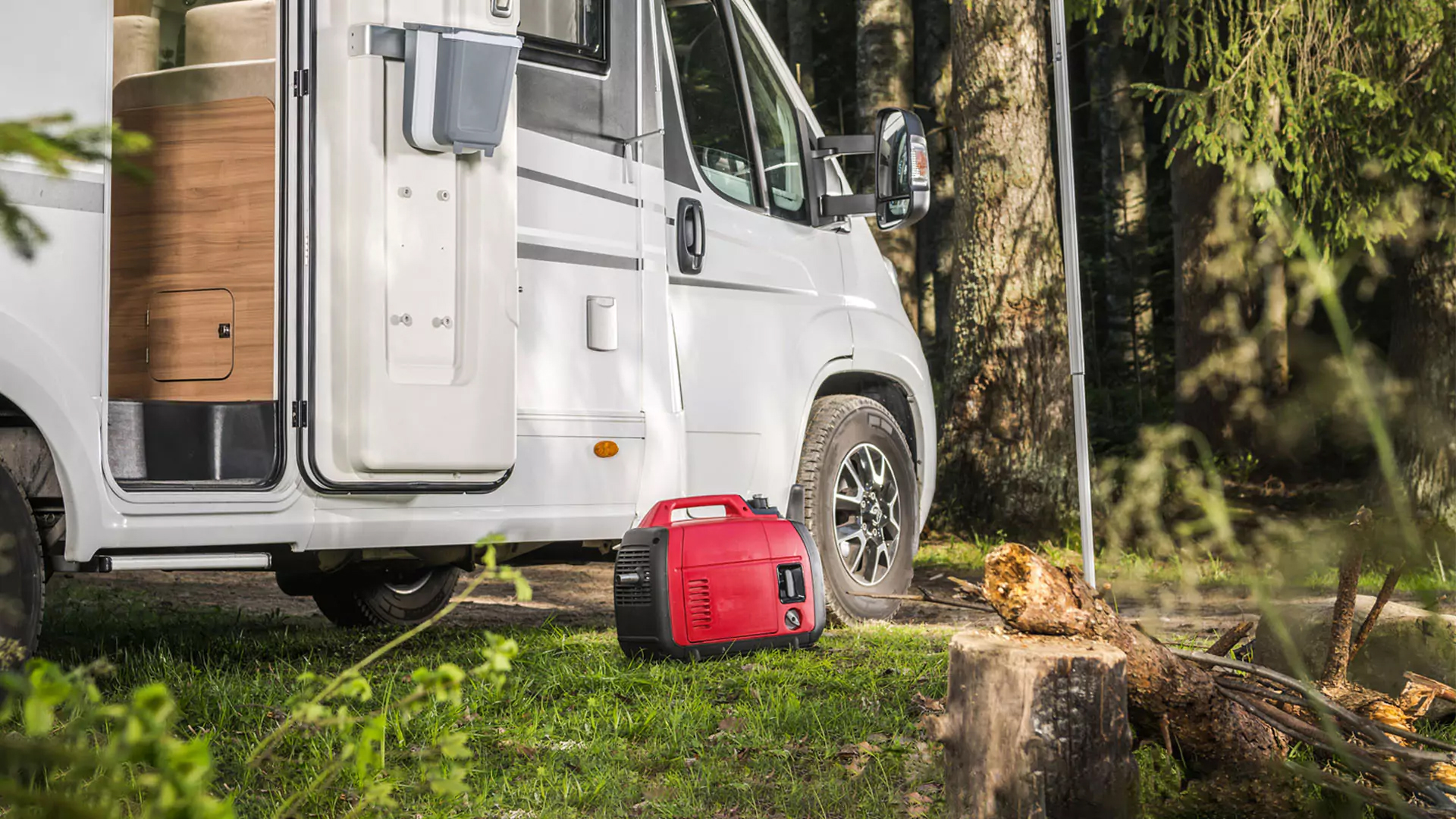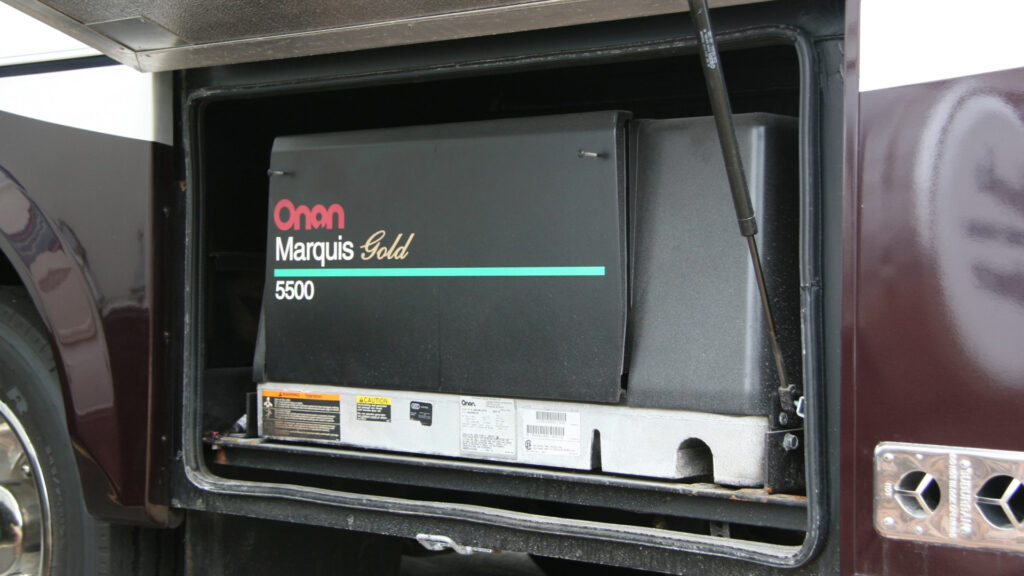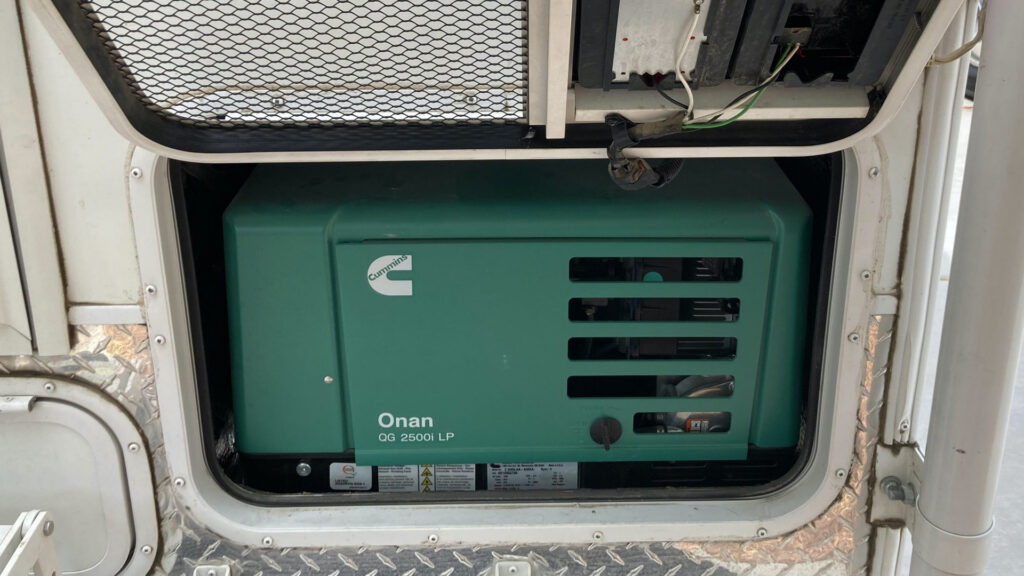
RV Generator Maintenance: Essential Guide for Reliable Power
Table of contents
- Understanding Your RV Generator
- Essential Maintenance Schedule
- Specific Maintenance for Gas Generators
- Diesel Generator Maintenance Specifics
- Best Practices for Generator Operation
- DIY vs. Professional Maintenance
- Troubleshooting Common Generator Issues
- Maximize Your Generator’s Efficiency with Custom Skirting!
- Related Articles
As an RV owner, one of the most crucial pieces of equipment you’ll rely on during your trips is your generator. Whether you’re camping in the wilderness or parked at a campground, a properly maintained RV generator ensures reliable power for your appliances, air conditioning, lights, and more. Without it, your comfort could quickly turn into frustration. Having s proper RV generator maintenance schedule is essential to ensure that your generator functions smoothly for years to come. Ignoring generator maintenance can lead to unexpected failures, potentially ruining your vacation or causing costly repairs.
This guide will provide a comprehensive maintenance plan suitable for all types of RV generators, helping you understand how to maintain a generator and extend its lifespan. Throughout this article, we’ll explore the various aspects of generator care, from basic checks to advanced maintenance tasks, as well as troubleshooting tips. We’ll also discuss the importance of a proper generator maintenance schedule to ensure your generator runs smoothly. Whether you’re new to RVing or an experienced traveler, this guide will offer helpful insights to keep your generator in top shape.
Understanding Your RV Generator
Types of RV Generators
There are different types of generators used in RVs, with the most common being built-in and portable generators. Each type has its own set of maintenance of generator tasks, depending on the fuel source and design.
- Built-in generators: These are permanently installed within the RV, providing power whenever needed. Popular brands like Onan (Cummins) are often found in many RVs. Built-in generators tend to offer higher power capacities, ranging from 3,000 to 12,000 watts, depending on the RV class. Regular RV generator maintenance is essential to keep them running smoothly, with tasks like oil changes and air filter inspections being crucial.
- Portable generators: These generators are separate from the RV and can be moved around as needed. Honda, Yamaha, and Westinghouse are some of the well-known brands in this category. Portable generators typically offer lower power capacities compared to built-in options, making them suitable for smaller RVs. Their generator maintenance schedule might differ slightly from that of built-in units but still requires consistent upkeep.
Generations can run on diesel, gasoline, or propane, and each fuel type has unique maintenance requirements:
- Gasoline generators are the most common and typically require regular oil changes, air filter cleaning, and fuel system maintenance.
- Diesel generators are often found in larger RVs or those used for heavy-duty purposes. Diesel models require regular maintenance of the cooling system, fuel filtration, and water separation systems.
- Propane generators are known for their efficiency and cleaner emissions, but their maintenance needs focus more on fuel system cleanliness and filter replacements.
Why Regular Maintenance Matters
Understanding the importance of regular generator maintenance is crucial for extending the life of your generator. Well-maintained generators provide a steady, efficient power source while minimizing the risk of breakdowns. Neglecting regular upkeep, however, can cause generators to work inefficiently or fail at critical moments.
- Built-in generators have an expected lifespan of 15,000 to 20,000 hours with proper care.
- Portable generators typically last 10,000 to 25,000 hours when maintained correctly.
Proper maintenance not only increases the generator’s lifespan but also saves you thousands in repair or replacement costs. A well-cared-for generator runs more efficiently, which can save you money on fuel and reduce emissions, benefitting both the environment and your wallet.
Essential Maintenance Schedule

Monthly Maintenance Tasks
Performing basic maintenance on a monthly basis helps avoid long-term damage to your RV generator. Some of the essential generator maintenance tasks to complete every month include:
- Run the generator: Run your generator for at least 30-60 minutes at 50% load. This ensures the fuel system stays lubricated and prevents fuel-related issues, such as clogging or gumming in the carburetor.
- Check battery connections: Inspect the battery for any corrosion and ensure the connections are tight and free of rust.
- Inspect for leaks or damage: Check the fuel lines, exhaust system, and any other areas for potential leaks or cracks that could cause operational issues.
- Drain exhaust condensation (for diesel): Diesel engines produce condensation in the exhaust system that can cause corrosion if left unchecked. Drain this condensation regularly to prevent damage.
Even if your RV is in storage, running the generator monthly prevents fuel system problems and ensures that moving parts remain lubricated.
Quarterly and Annual Maintenance
In addition to monthly tasks, some maintenance of generator tasks should be performed on a quarterly or annual basis, depending on how often you use your generator.
- Check and clean air filters: Dirty air filters can reduce engine efficiency and fuel economy. Clean or replace the air filter every 150-400 hours, depending on usage conditions.
- Inspect fuel lines and exhaust system: Over time, fuel lines can degrade, and the exhaust system can become clogged or corroded. Make sure to check these parts for any signs of wear and replace them as necessary.
- Test safety systems: Regularly test your carbon monoxide detectors, pressure regulators, and other safety equipment to ensure everything works correctly.
Specific Maintenance for Gas Generators
Oil and Filter Changes
Regular oil changes are crucial to the performance of any gas generator. Typically, oil should be changed every 50-150 hours of operation or once a year, whichever comes first. Always use the oil type specified in the owner’s manual to maintain the efficiency of the engine.
The oil filter should also be replaced during each oil change. Old oil can degrade and cause engine wear, while dirty filters hinder engine performance, leading to unnecessary breakdowns.
Spark Plugs and Air Filters
Spark plugs are vital for igniting the fuel in the engine. Over time, they can become worn, which reduces fuel efficiency and performance. Replace spark plugs approximately every 450 hours of operation.
Air filters should be checked every 150-400 hours of operation, depending on the conditions in which you’re using the generator. A clogged air filter reduces airflow, which can lead to poor combustion and a decrease in overall generator efficiency.
Fuel System Maintenance
Fuel system maintenance is crucial for preventing starting issues and carburetor problems. Replace fuel filters every 500 hours of use and always use fuel stabilizer if you plan on storing the generator for an extended period. Clean fuel lines to prevent clogs, and always store fuel in proper conditions to avoid contamination.
Diesel Generator Maintenance Specifics

Cooling System Care
Diesel generators have a more complex cooling system, which requires specific attention. Check the coolant levels regularly and perform a full system flush every 1,000 hours or 5 years, depending on the manufacturer’s guidelines.
Fuel and Water Separation
Water contamination in diesel fuel can cause major engine problems. Drain the water separator every 100 hours of operation to prevent water from mixing with the fuel and damaging the fuel injectors. Using fuel additives can also help maintain fuel quality and prevent rust in the system.
Best Practices for Generator Operation
Proper Loading and Usage
To avoid issues like “wet stacking” in diesel engines or carbon buildup in gas engines, always operate the generator with an appropriate load. Avoid running the generator without any load, as this can cause incomplete combustion and performance issues.
Storage Considerations
Before storing your generator for an extended period, take the necessary precautions to ensure it will start reliably when you need it. Use fuel stabilizer, remove the battery and store it in a cool, dry place, and cover the generator to protect it from the elements.
DIY vs. Professional Maintenance
What You Can Do Yourself
Many RV owners can perform basic generator maintenance tasks themselves, including checking the oil, replacing filters, and inspecting the battery and connections. Having the right tools on hand and following safety precautions is important when performing any generator work.
When to Seek Professional Help
For more complicated issues, such as major repairs or annual inspections, it’s best to seek professional help. Professional service can ensure that your generator is running at peak performance, and the technician can use specialized diagnostic equipment to catch problems before they escalate. Following a generator maintenance schedule with professional oversight ensures that your generator stays in top shape for years to come.
Troubleshooting Common Generator Issues
Common issues with RV generators include difficulty starting, power fluctuations, unusual noises, or excessive smoke. Many of these problems can be prevented or minimized with proper generator maintenance. However, if troubleshooting doesn’t solve the issue, it’s best to contact a professional to avoid further damage.
Maintaining your RV generator is a vital part of RV ownership. By following a proper generator maintenance schedule and performing essential tasks regularly, you’ll ensure that your generator runs smoothly for years to come, providing reliable power whenever you need it.
Maximize Your Generator’s Efficiency with Custom Skirting!
Keep your RV running smoothly with optimal generator upkeep by reducing wind exposure and retaining heat with Custom Skirting. Designed for RVers who want to minimize generator use, our No-Snap, No-Gap system ensures your RV stays protected, insulated, and adventure-ready. Don’t compromise on quality—our skirting is custom-built on-site for a perfect fit and is tested to withstand the harshest conditions. Whether you’re exploring the wilderness or braving winter, enhance your RV experience with the nation’s #1 skirting solution.
Ready to reduce your reliance on your generator and stay cozy on your next adventure? Get Custom Skirting today and experience the difference for yourself!
